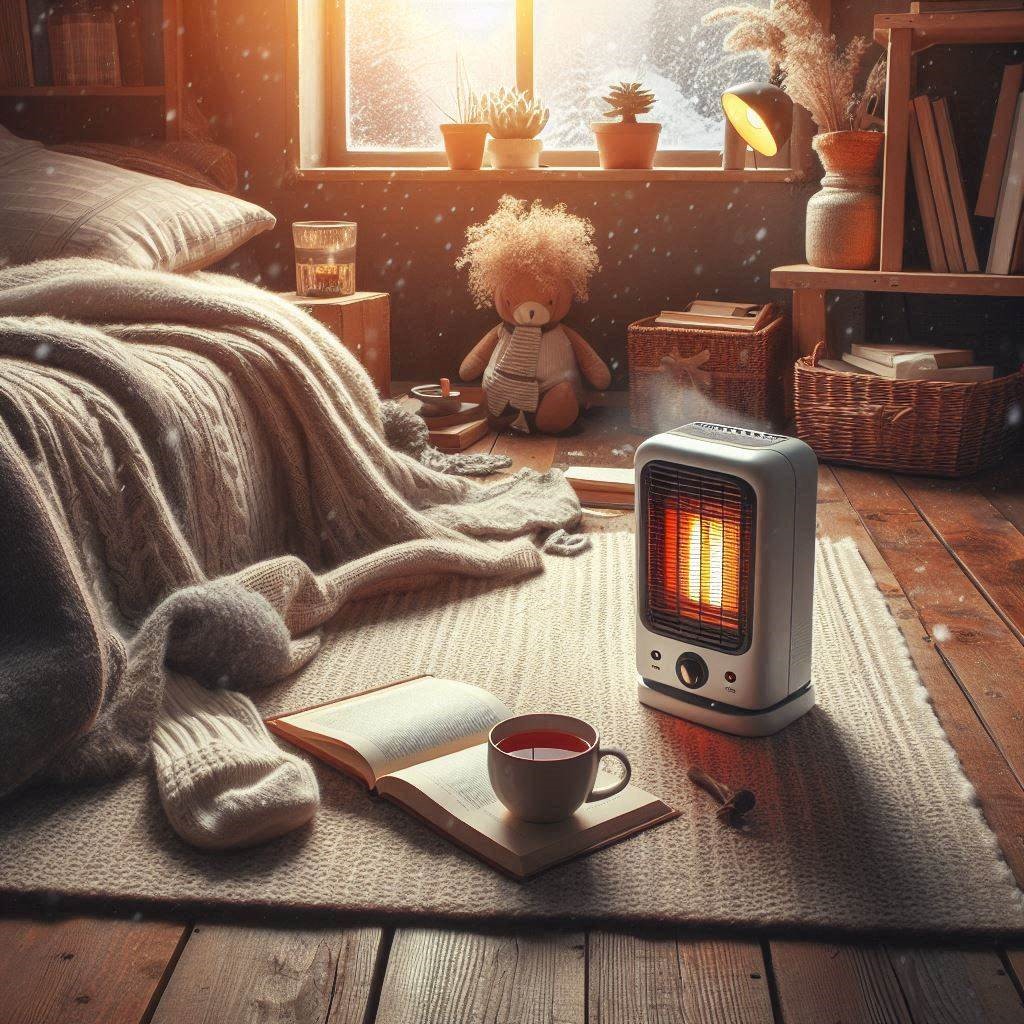As the colder months approach, the importance of heating becomes paramount in maintaining a comfortable and safe living environment. However, with the increased use of heaters, especially overnight, comes the concern of safety. Many people wonder whether it’s safe to leave heaters on while they sleep. This article aims to explore which heaters are safe to leave on overnight and the best practices for their use to ensure warmth without compromising safety.
Table of Contents
ToggleDifferent Types of Heaters
Electric Space Heaters
Electric space heaters are a popular choice for supplemental heating in homes. They come in various types, including ceramic heaters, infrared heaters, and oil-filled radiators. These heaters are favored for their portability and ease of use. When considering an electric space heater for overnight use, it’s essential to look for safety features such as automatic shut-off and tip-over protection. These features help prevent overheating and reduce the risk of fire.
Gas Heaters
Gas heaters, which include propane and natural gas heaters, are another option for heating. However, they come with significant risks, particularly the potential for carbon monoxide poisoning if not properly ventilated. These heaters are generally not recommended for overnight use unless they are equipped with advanced safety features, including oxygen depletion sensors. The use of carbon monoxide detectors is crucial in homes that rely on gas heaters.
Central Heating Systems
Central heating systems provide a safer alternative to portable heaters for maintaining a consistent temperature throughout the home. These systems are integrated into the building’s infrastructure and are typically safer to leave on overnight, as they are designed to operate continuously with built-in safety mechanisms. Compared to portable heaters, central heating systems offer a more uniform distribution of heat and minimize the risks associated with localized heating sources.
Safety Considerations for Leaving Heaters On Overnight
Fire Hazards
Heater-related fires are a significant concern, especially when heaters are left on overnight. According to the National Fire Protection Association (NFPA), heating equipment is one of the leading causes of home fires. Common causes of heater fires include placing heaters too close to flammable materials, malfunctioning units, and improper use of extension cords. To mitigate these risks, it’s essential to follow manufacturer guidelines and ensure that heaters are placed at a safe distance from curtains, furniture, and other flammable objects.
Overheating Risks
Overheating is another risk associated with leaving heaters on overnight. Heaters can overheat if they are covered or if the thermostat settings are too high. This can lead to equipment failure and potential fire hazards. Regular maintenance, including cleaning the heater and checking for worn-out parts, is crucial to prevent overheating. Setting the thermostat to an appropriate level can also help maintain a safe temperature.
Carbon Monoxide Risks
Gas heaters pose a unique risk of carbon monoxide poisoning if they are not properly ventilated. Carbon monoxide is a colorless, odorless gas that can be deadly at high levels. Homes that use gas heaters should have carbon monoxide detectors installed in key areas, such as near bedrooms and the heating source. Regularly testing these detectors ensures they are functioning correctly and provides an additional layer of safety.
Heaters Considered Safe for Overnight Use
Modern Electric Space Heaters
Modern electric space heaters with safety certifications and features such as automatic shut-off and tip-over protection are generally considered safe for overnight use. Models like the Lasko Ceramic Heater and the Dyson Hot + Cool are known for their safety features and efficiency.
Oil-Filled Radiators
Oil-filled radiators are another safe option for overnight heating. These heaters work by heating oil inside the unit, which then radiates heat. They are known for their steady, even heat distribution and safety features, including automatic shut-off. Since they do not have exposed heating elements, the risk of fire is significantly reduced.
Infrared Heaters
Infrared heaters operate by emitting infrared radiation, which heats objects and people directly rather than the air. These heaters are energy-efficient and safe for overnight use, provided they have safety features like tip-over protection and overheat sensors.
Wall-Mounted Heaters
Wall-mounted heaters are a permanent heating solution that can be safely used overnight. These heaters are installed securely on the wall, reducing the risk of tipping over. They come with built-in safety features and are ideal for rooms where space is limited.
Best Practices for Using Heaters Overnight
Proper Placement
For safe overnight use, place heaters at least three feet away from walls, furniture, and flammable materials. Ensure the heater is on a stable surface and not in an area where it can be easily knocked over.
Regular Maintenance
Maintaining your heater is crucial for safety. Regularly check cords and connections for wear and tear, and clean the heater to prevent dust buildup, which can cause overheating.
Use of Timers and Thermostats
Programmable timers and thermostats can help control the heater’s operation, reducing the risk of overheating. Setting the thermostat to a lower temperature overnight can provide comfort while saving energy.
Monitoring and Precautions
Installing smoke and carbon monoxide detectors in your home is a vital safety measure. Regularly check these detectors to ensure they are functioning correctly and replace batteries as needed.
Alternatives to Leaving Heaters On Overnight
Layering and Insulation
Using blankets, thermal curtains, and insulating your home can help retain heat without relying solely on heaters. These methods provide warmth and can reduce energy costs.
Space Planning
Rearranging furniture to maximize heat retention and creating cozy sleeping environments can enhance warmth without the need for constant heating.
Using Smart Home Technology
Smart thermostats and home automation systems allow you to control heating efficiently and safely. These technologies can optimize heating schedules and monitor indoor temperatures.
Conclusion
Heating is essential during colder months, but safety should always be a priority when leaving heaters on overnight. By understanding the different types of heaters, implementing best practices, and considering alternatives, you can maintain a warm and safe home environment throughout the night.

